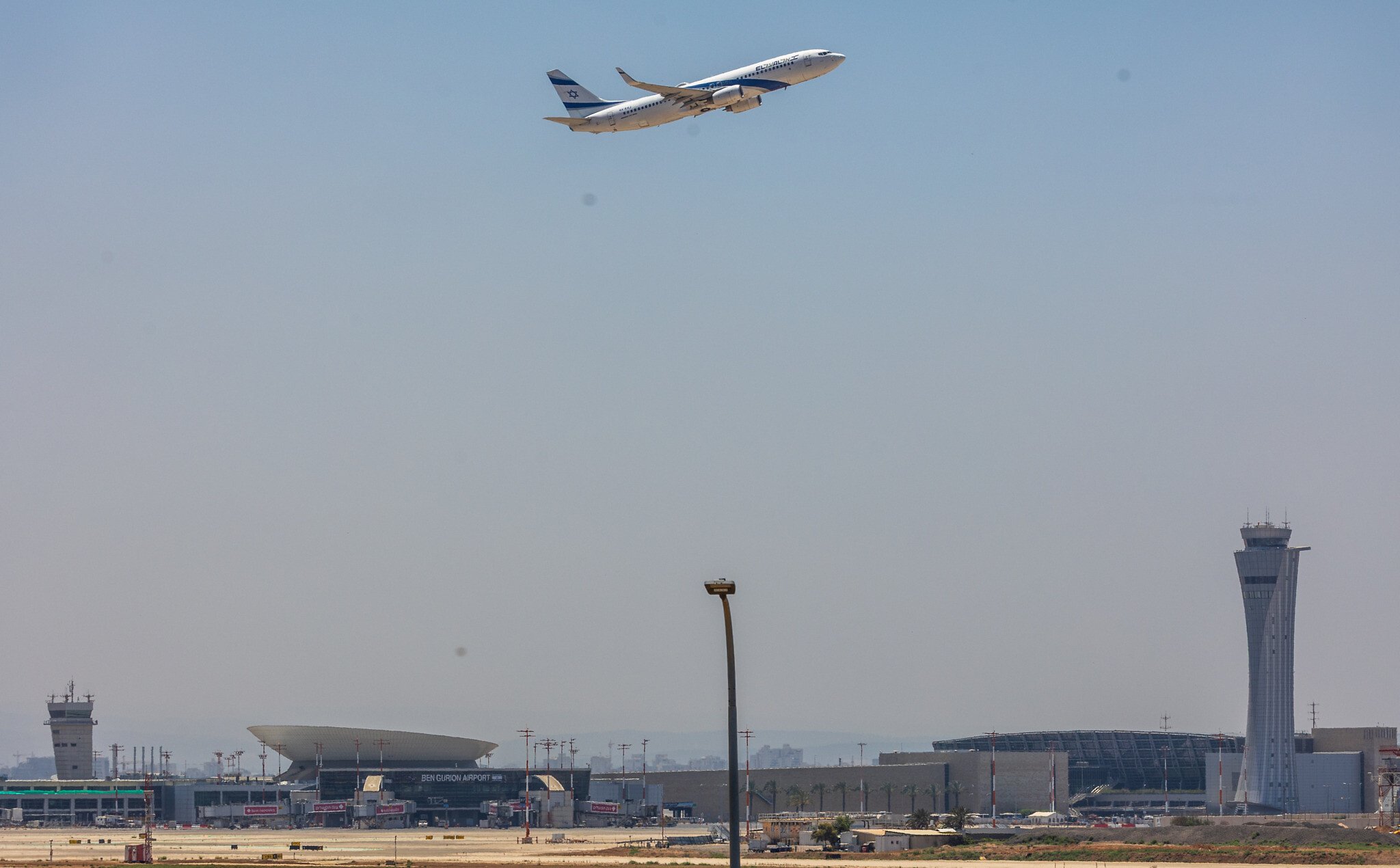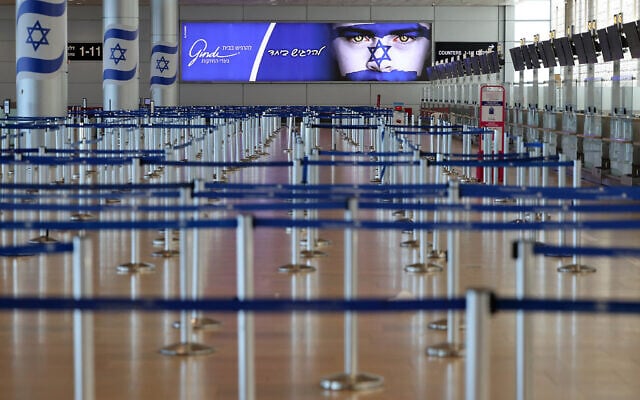



Israel was expecting to let more than 1,000 passengers leave the country on Monday, on the first outgoing flights departing from Tel Aviv’s Ben Gurion Airport after departures were barred since June 13 amid the ongoing conflict with Iran.
The flights, which will have a strict limit of 50 passengers per plane, will allow stuck foreigners to return to their home countries for the first time since the outbreak of war with Iran, and offer Israelis who need to leave the country a chance to do so. In light of the restricted seat availability, priority on outbound flights will be given to life-saving, humanitarian and national security cases.
“We expect local airlines to operate 24 incoming repatriation flights arriving from global destinations, flying Israelis home, on Monday, and on each of these outgoing flights taking off there will be a limit of 50 passengers leaving,” Transportation Minister Miri Regev said. “We need to limit the number of passengers on planes that are on the tarmac during this challenging period when the airport can be a target.”
“I believe that by the weekend, we will be able to weigh whether we are able to increase the number of passengers leaving on outgoing flights, as well as the hours of flight operations, subject to the security situation and guidelines by the Home Front Command,” Regev added.
Israel closed its airspace when it began attacking Iran’s nuclear program on June 13, leaving some 40,000 tourists stranded in the country with few options to leave other than via land border crossings with Egypt and Jordan, or via the maritime space, which have remained open.
Last week, Israel kicked off a phased national operation, including repatriation flights to help bring home between 100,000 and 150,000 Israelis who were stranded abroad, and have been scrambling for a way to get back home since. Since Wednesday, Israeli airlines — El Al, Israir and Arkia — have operated repatriation flights to bring back Israelis, mainly from Europe and the US, but only during daylight hours in light of the repeated nighttime missile barrages directed at Israel by Iran.
Since Wednesday, two repatriation flights per hour were permitted to land, disembarking Israeli travelers at Ben Gurion Airport, before taking off and immediately leaving the airport with no outgoing passengers on board. Israel has until now barred foreigners and Israeli citizens from leaving the country via air travel, saying that the restrictions are in place to avoid overcrowding and minimize the time planes spend on the ground at Ben Gurion Airport due to security risks and Home Front Command guidelines limiting the congregation of people.
Starting Monday, outgoing flights will operate exclusively from Ben Gurion Airport’s Terminal 3. Entry to the terminal will be permitted to passengers with valid tickets only, with exceptions for those assisting travelers with special needs or unaccompanied minors.
Passengers on outbound flights have been advised to arrive by public transportation no more than two hours before their scheduled departure. For those arriving by private car, only quick drop-offs will be permitted. Cafés in the departure hall and near the gates will be open. Duty-free shops will remain closed to limit time spent in the terminal.
El Al said it plans to operate flights to eight major destinations. El Al customers who had their flights canceled since June 13 will be assigned to outbound flights at no additional cost.
For all other passengers, including tourists and cases of medical and humanitarian urgency, El Al has set fixed ticket prices. One-way tickets to Larnaca will sell for $99, and to Athens for $149. To Rome, Paris, and London, tickets will be sold for $299. To New York and Los Angeles, they will be priced at $795, and to Bangkok at $695.
Smaller carrier Arkia will operate a total of six repatriation flights to Larnaca, Athens, Vienna, Rome and Barcelona.
Regev emphasized that a passenger purchasing a one-way ticket to leave Israel will only be able to buy a return flight ticket home for a date that is at least 30 days away from the departure date, according to the new outbound policy.
“Tens of thousands of Israelis have returned to Israel in recent days via land border crossings, the sea, and repatriation flights,” Regev said. “But we estimate that there are probably another 84,000 Israelis that we need to bring home.”


